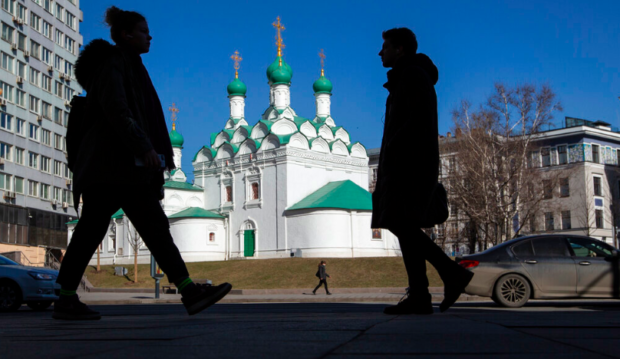Russia moves to expand government control of internet

People are silhouetted as they walk along an avenue past an old Orthodox church in the background in Moscow, Russia on April 2, 2019. AP
MOSCOW — Russian lawmakers approved Thursday a bill that would expand government authority over the internet and whose opponents fear heralds widespread censorship.
The bill would install equipment to route Russian internet traffic through servers in the country. That would increase the powers of state agencies and make it harder for users to circumvent government restrictions.
The proposed move sparked protests of several thousand people in Moscow last month. Opponents argue it would allow the state to control the flow of information and enforce blocks on messaging applications which refuse to hand over data.
Advocates say the bill is intended to address concerns that Russia could be cut off if the United States engages in a cybersecurity offensive.
The bill passed by 322-15 in a second reading in the lower house of parliament.
Article continues after this advertisementThe second reading is when amendments are finalized, and is usually the most important. The bill must pass a third reading and the upper house before being signed into law by President Vladimir Putin.
Article continues after this advertisementSince last year, Russian authorities have been trying to block the messaging app Telegram, which has refused to hand over users’ encrypted messages in defiance of a court order.
Telegram’s traffic used millions of different internet protocol addresses, meaning attempts to block it resembled a game of whack-a-mole. Many unrelated apps, online stores and even Volvo car repair services were temporarily knocked offline last year before Russian officials eased their pressure. The new law could make a block easier.
Russia already requires certain personal information about Russian citizens to be stored on servers in the country. That measure led to the social network LinkedIn being blocked in 2016. /ee